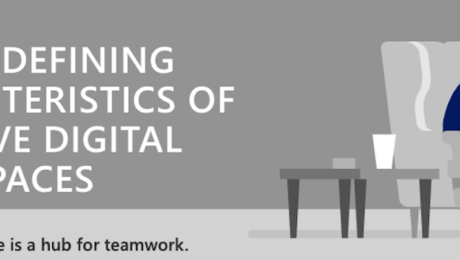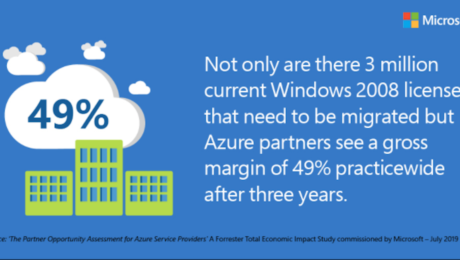Why Remote Work Trumps Being in the Office
It’s no secret that when implemented with the right vision and control mechanisms, remote collaboration provides outstanding benefits for both employees and organizations. Workers enjoy greater flexibility plus the satisfaction of better work-life balance, while organizations obtain unparalleled scalability and increased efficiency across projects.
In this article, we’ll put you in the shoes of a passionate work-from-home advocate to discover the main reasons why this benefit is sought after by professionals in every industry. You’ll also learn why, in these digital times, remote collaboration is not only an option, but THE best option for companies that wish to empower and motivate today’s diverse and inclusive workforce.
- Published in Technology
The leading South African law firm steps up digital innovation to build the legal practice of tomorrow
With over 150 years of history and experience in the legal market, Webber Wentzel has become one of South Africa’s most prominent law firms, operating at the forefront of legal services and home to the country’s longest-standing pro bono practices. The firm aims to act as a beacon of innovation for the industry. In this video, see how Webber Wentzel has taken advantage of the capabilities of Office 365 to create a more efficient and collaborative workplace for its teams, while facilitating and securing client interactions.
- Published in Technology
The 4 defining characteristics of effective digital workspaces
Not so long ago, it was believed that for teams to be productive, they required long hours confined in a physical office space with constant face-to-face interaction. To be fair, given the primitive state of digital collaboration tools at the time—which was pretty much limited to emails—there wasn’t really a solid alternative to this scheme, so companies worked with what they had.
Today, digitalization has made it possible for several people to seamlessly work together while being halfway across the world from each other. Exponential advancements in virtual workspaces have not only enabled teams to work as well as they did when they spent all day in the office, but have also proven that people are actually more productive the less they have to deal with alienating cubicles and two-way trips along traffic-congested highways.
Not all digital workspaces have been equally effective, however. Yet decades of iterating and optimizing have finally given us a solid idea of the most important characteristics these spaces must have to reach their full potential. So what are they? Read this infographic to find out.
View: The 4 defining characteristics of effective digital workspaces
- Published in Technology
Azure Migrate: The hub for cloud migration
In this video, you’ll learn about Azure Migrate, Microsoft Azure’s central hub for datacenter cloud migration. Azure Migrate helps you discover, assess, and migrate workloads to Azure with integrated first and third-party tools.
- Published in Technology
Enable remote work faster with new Windows Virtual Desktop capabilities
Windows Virtual Desktop meets the needs of an increasingly distributed and remote workforce. Organizations of all sizes have had to quickly shift focus and support users who need to stay connected from new locations and devices. Learn what new capabilities Windows Virtual Desktop added to make remote work more efficient and secure.
- Published in Technology
Five ways SMBs can benefit from using Microsoft Azure to move to the cloud
This article examines five ways that you can start migrating your customers’ business to the cloud on their terms, and the reasons why now is the time to do so (including end-of-support for Windows Server 2008 R2 and Microsoft SQL Server).
- Published in Technology
How Online Collaboration Tools Could Help Your Business
It’s no secret that teamwork is one of the key ingredients to a successful business. But in today’s interconnected, wireless world, teams don’t necessarily need to be in the same location to make teamwork work—that is, as long as each team member is equipped with the right tools for collaborating and communicating on a project. So how do you determine which tools are right for your organization and teams, and what should you look for when evaluating prospective solutions? Read this Lifewire article, “The Benefits of Online Collaboration Tools,” to see what author Gabriela Warren feels are the greatest benefits of adopting such tools and, by extension, what features you should look for when shopping around.
- Published in Technology
5 ways to lead effective virtual meetings with your remote teams
With virtual meetings, your team can connect from across the globe. In this article, read five tips to help you ensure high productivity and efficiency during your virtual meetings. You’ll also learn techniques for keeping cameras on, connecting with your people with empathy, asking if there’s anything they need, ensuring there’s space for attendees to share their thoughts, and setting an agenda with an outline.
- Published in Technology
Five ways SMBs can benefit from using Microsoft Azure to move to the cloud
This article examines five ways that you can start migrating your customers’ business to the cloud on their terms, and the reasons why now is the time to do so (including end-of-support for Windows Server 2008 R2 and Microsoft SQL Server).
- Published in Technology
3 characteristics that define the modern workplace
Today’s diverse and intergenerational workforce is most productive when it has adequate channels to collaborate in a seamless and effective way. There’s a catch, however: teams are far more diverse and remote than ever before, and each organization requires its own distinct approach to digital collaboration. In other words, your workplace tools and applications must be customized based on your teams’ diversity, location, and work methods.
With this infographic, you’ll learn about the three main characteristics that define our modern workplace and gain insight into what drives productivity and efficiency in today’s organizations. After reading it, you’ll have a better understanding of current trends and can keep these in mind when creating or modifying your organization’s work environment.
- Published in Technology










